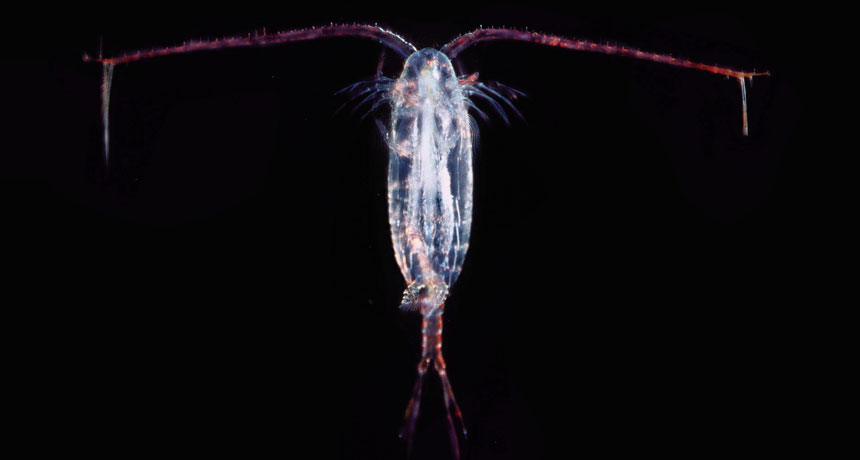Scientists Say: Copepod
These tiny crustaceans can be found wherever there’s water

It may not look like it, but this tiny copepod is actually related to lobsters and shrimp.
Uwe Kils/Wikimedia Commons/ CC BY-SA 3.0
These tiny crustaceans can be found wherever there’s water

It may not look like it, but this tiny copepod is actually related to lobsters and shrimp.
Uwe Kils/Wikimedia Commons/ CC BY-SA 3.0